Family Building and Return to Work Resources
For many residents and fellows, a decision to build or grow a family overlaps with their years in residency and fellowship training. Acknowledging that the training years are often unpredictable and challenging in many ways, UW GME is working to create an environment in which the full range of parenthood decisions are at play – and families of all types are welcome and can thrive. We see you and wish to support you in integrating these professional and personal goals!
Table of Contents

Thinking about starting or expanding your family?
Thinking About Starting or Expanding your Family?
Considerations
Leave:
- Learn about the various types of leave available and any potential impact on your training.
Child Care:
- Wait lists for child care can take multiple years. Start researching options and joining wait lists before your child joins the family! Learn more about available Child Care at UW.
- Look into the dependent care assistance program (DCAP) which helps you pay for child care by allowing you to set aside a portion of your salary (pre-tax) for eligible expenses.
Fertility:
- The UW Medicine Reproductive Clinic at UWMC – Roosevelt offers a discount for UW students and employees on fertility treatments. For more details call the Roosevelt clinic at 206-598-4225.
- View recording of GME’s Family Planning & Fertility for Resident Physicians event in October 2022. See additional resources highlighted by guest speakers and our resident/fellow panel.
Adoption:
- The UW Center for Adoption Medicine provides Pre-Adoption Consultations, Travel and Transition resources and more.
Mental Health:
- The UW Perinatal Psychiatry Clinic offers consultation and treatment for any birthing patient with a mental health condition who is considering becoming pregnant, pregnant or postpartum. Services include preconception counseling regarding management of psychiatric disorders during pregnancy, help for patients in making informed decisions regarding treatment of psychiatric disorders during pregnancy / lactation, and medication management and psychotherapy for psychiatric disorders during pregnancy and lactation.
- Additional resources are available in the Perinatal Mental Health Care Guide.
Finances:
- Raising a child can be expensive. Explore all of your financial options including budgeting, loan deferment, and emergency loans if needed.
- Check for UW-specific discounts on childcare (filter by category: Childcare Services)
- Review insurance coverage for pregnancy related care before choosing a plan. Is opening a Flexible Spending Arrangement (FSA) or Health Savings Account (HSA) right for your family?
- Explore the dependent care assistance program (DCAP) which helps you pay for child care and elder care by allowing you to set aside a portion of your salary (pre-tax) for eligible expenses.
Tips from Colleagues
- Find people within your department/division/group who are parents and prioritize their role as parents. Ask for their advice, tips and even mentorship.
Pregnancy Accommodations
Learn more about the accommodations available during and after your pregnancy on the UW HR website and in the RFPU-NW CBA.
Helpful Links
- Reasonable Accommodation of Pregnant Employees (UW Administrative Policy Statement)
- Disability Services Office
Contact
Disability Services Office
206-543-6450
206-543-6452 (TTY)
dso@uw.edu
Doulas, Childbirth, Parenting and New Baby Classes
Are you considering a birth and/or postpartum doula? Learn more and find your perfect doula on DoulaMatch. Some hospitals also offer free doulas – check with your provider.
To help you navigate pregnancy and parenthood, multiple childbirth, parenting and new baby classes are offered at UW medical centers and clinics. Learn more and register for a class. See additional classes on the Great Starts website.
Join a Program for Early Parenting Support (PEPS) peer-support group for expectant parents (via birth or adoption). Learn more about the 6-week program on the PEPS website.
Tips from Colleagues
- Classes can be a great place to find a doula, or friends and a support system of parents expecting around the same time as you.
- Make sure to ask potential doulas if they are taking on new clients based on your due date, and whether postpartum visits are available.
Navigating Leave
Overview and Availability of Leave
When planning for Parental Leave, there are three important things to consider: what leave types are available, how much paid time off is available, and how much leave you can take before a training extension is required. Visit the GME Leaves of Absence webpage to review these considerations.
Helpful Links
Discuss your needs and goals with your program
Initiate a meeting with your Program Director and Program Administrator to discuss your leave plan, available resources, and scheduling impacts. During this meeting you can request that your Program Administrator inform attendings and schedulers of any upcoming leave you will take or any lactation breaks you will need when returning to work.
Questions to consider before you speak with your program:
- How would I like information about my upcoming leave and/or pregnancy/impending parenthood shared with my colleagues?
- Are there any health concerns that will impact my ability or willingness to take night shift or work with certain substances, etc.? See Request Pregnancy Accommodations.
Questions to discuss with your program:
- How will leave impact the length of my training?
- How will leave impact my ability to take boards?
- Are changes to the program or specialty board training requirements available?
- Is “payback” of any sort required for missed call during leave?
- If relevant: How can my partner and I coordinate leaves and schedules with both of our UW training programs?
- For a pre-scheduled leave, what flexibility is available if the birth or adoption of my child is delayed?
- Are there flexible working arrangements for my return to work?
- If relevant: What lactation support is available for me after returning to work?
- Does the program provide any modifications to schedule?
If you would prefer not to address these topics directly with your Program, please contact GME to assist.
Helpful Links
- American Board on Medical Specialties (ABMS) Policy on Parental, Caregiver and Medical Leave During Training – review your specialty board policies for more information.
Return to Work Planning
Identify Lactation Resources
Do you plan to express breastmilk after returning to work? Start thinking about the when, where and how before you return to work. Review your upcoming schedule and identify services and locations where you will be expressing, then research nearby lactation rooms and determine which room will work best for you.
Do you have:
- An available location?
- Access to the room?
- Have you reserved a time slot?
- Coverage for your lactation sessions?
- Do you have the supplies you need?
- Do you know where you will store your milk?
Complete the following steps before you need to express milk:
- Ensure you have access to the lactation room (appropriate door codes, proxy card permissions, etc)
- Reserve a time slot on Outlook or other reservation system (not available for all rooms)
- Gather necessary supplies (pump, cooler, ice packs, bottles, etc)
- Consider where you will store your milk. Do you prefer a refrigerator or personal cooler? Many lactation rooms have a refrigerator inside or nearby the room but if not contact the GME office for a loaner cooler.
Before your at work lactation session ensure that you communicate with your attendings and colleagues:
- Ideally work with your colleagues to schedule mutually amenable session times.
- Inform your colleagues before stepping away for a lactation session.
- Ensure patient care and clinical continuity is in place.
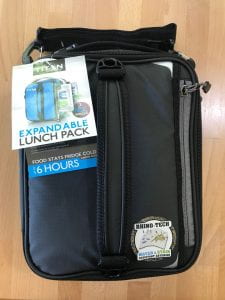
Borrow a pump, portable cooler or mini-fridge from GME
The GME Office has a pump, a mini-fridge for milk storage and a number of portable lactation coolers with ice packs available for trainees to borrow. Contact Jenn Johal at jenjohal@uw.edu .
Tips from Colleagues
Whether formula or breastmilk, remember, “a fed baby is a happy baby, don’t stress” about the source. – Dr. Katie Liu, Plastic Surgery
Pumping:
- As soon as you begin lactating start freezing any extra milk you have to build up a surplus.
- Consider hands-free pumping options such as a pumping bra or wearable pump.
- Pumping During Residency advice from Dr. Meghan Rochester, Internal Medicine.
Lactation Session Coverage:
- Co-residents or fellows can provide coverage for you to express milk.
- If comfortable, pumping during required conferences or didactics (especially if attending remotely) can help save time during a busy day.
- Ask a faculty member to assist with tasks (checking in a patient, etc) to allow for expression time prior to the start of a surgery or lengthy task.
Want to speak to a colleague about breastfeeding or pumping? Email jenjohal@uw.edu to be connected with a volunteer.
Contact
Can’t find a convenient lactation room?
- Speak to your PA
- Contact GME (206-616-8286)
Reach Out If You Need Additional Help
The GME Office is here to support you. Please reach out with questions or concerns, we want to hear from you. Our office can discuss issues and potential solutions with you and will only involve your program by request.
You can reach out directly to our Associate Dean, Dr. Jennifer Best at jabest@uw.edu who will work with you or connect you to the appropriate team member. You can also Report A Concern anonymously or explore additional confidential reporting options.
Contact
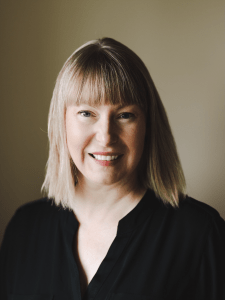 Jennifer Best, MD
Jennifer Best, MD
Associate Dean, Accreditation and Education
jabest@uw.edu
206.616.8286
Parenthood
Child Care
Researching child care options and resources should be started early as the waiting list can be very long. Learn more about onsite childcare at UW and UW affiliated sites and additional UW and community child care resources.
Financial assistance is available from the RFPU Childcare Program.
Explore the dependent care assistance program (DCAP) which helps you pay for child care and elder care by allowing you to set aside a portion of your salary (pre-tax) for eligible expenses.
Helpful Links
- Child care at UW
- Back-up and sick-child care
- The Whole U Discounts on Child care (select the “Childcare Services” category)
- Programs for kids at UW
Tips from Colleagues
- WA Law Chapter 110-300 WAC states that children cannot stay in daycare for more than ten hours a day. If you need child care beyond this amount you can look into receiving an exemption.
Contact
UW HR
childcare@uw.edu
Support Resources
- UW GME Parenthood Peer Mentorship Program (PPMP) – Get matched with a fellow parent trainee through the PPMP. This program matches young parents with mentors who have older children to discuss a range of topics including work/life balance, parenthood or pregnancy accommodations and more.
- UW GME Wellness Counselors – Our counselors offer free, unlimited and confidential counseling for individuals and couples.
- Families of Color Seattle (FOCS) – this non-profit hosts parent groups, community resources and events, and racial equity consulting. They maintain a robust list of resources on current topics, common concerns and more.
- Physician Moms Group (PMG) – this group of over 71,000 members of all specialties was created to bring together women physicians, who are also parents, so that they can collaborate and support each other while sharing their medical expertise in an open forum. The PMG mission is to provide resources, a platform to network, and an opportunity to share information with like-minded individuals.
- Program for Early Parent Support (PEPS) – Build a support network with fellow parents who understand what you are going through. The PEPS connects you with other new parents who live nearby and have a baby close in age to yours. Learn, share resources, and build confidence in your own parenting abilities — all you need to do is register and show up with your baby. PEPS offers peer-support groups, drop-in sessions and events for families of all ages, in addition to affinity groups.
- Rainbow Families – this non-profit educates, connects, and supports LGBTQ+ families and parents-to-be. Based in Washington DC they are now offering a wealth of classes, peer support groups and an annual conference online.
- Employee Assistance Program – Connect with experts who help you or your family members navigate life’s challenges. You get free, confidential access to guidance consultants who provide a range of services from finding childcare to accessing counseling. Additional resources include financial coaching, legal services and elder care resources.
- UW Center for Child & Family Well-Being– the center conducts research, hosts workshops, trainings and releases publications on Promoting Well-Being & Resilience, Supporting Parents, Addressing Adversity & Inequity, and Cultivating Mindfulness & Compassion.
- UW Perinatal Psychiatry Clinic – Consultation and treatment for any birthing patient with a mental health condition. Services include help for patients in making informed decisions regarding treatment of psychiatric disorders and medication management and psychotherapy for psychiatric disorders during pregnancy and lactation. Additional resources are available in the Perinatal Mental Health Care Guide.
Helpful Links
- Sign up for the Parenting Mailing List to receive regular updates on childcare-related caregiving, local and virtual family activities, webinar lectures, access to a bi-weekly parenting newsletter and more.
Upcoming Events for GME Parents
The GME Wellness Service and office host events geared towards parents throughout the year. Upcoming events will be displayed below.
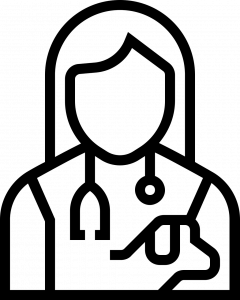

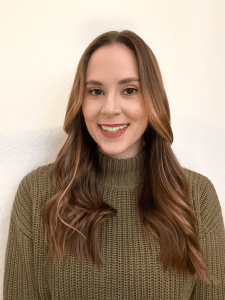 Bre Leatherman
Bre Leatherman